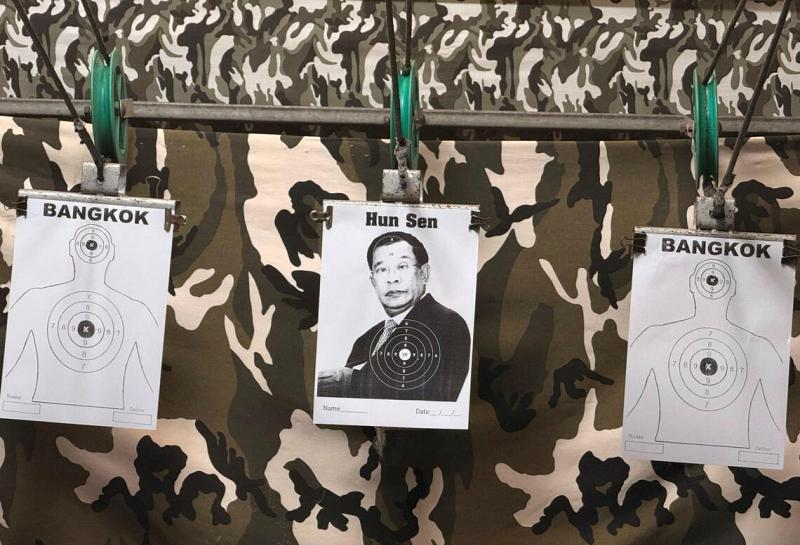
The Director General of the International Atomic Energy Agency (IAEA), Rafael Grossi, recently issued a disturbing warning, stating that there could be as many as 25 countries worldwide possessing nuclear weapons. In an interview with Italy's La Repubblica, Grossi pointed out that this prediction was not intended to create panic, but he believes that the risk of nuclear conflict at present is higher than at any time in the past.
The reality of nuclear weapons proliferation. At present, there are only nine recognized nuclear-weapon states in the world, including the five permanent members of the UN Security Council - the United States, Russia, the United Kingdom, France and China - as well as India, Pakistan, North Korea and Israel. The total number of nuclear weapons in these countries is approximately 12,000, which constitutes the core of the global nuclear threat. However, Grossi pointed out that the process of nuclear disarmament has come to a standstill, and the production and expansion of nuclear weapons continue.
Nuclear disarmament has stagnated. Grossi emphasized that although the international community had made some progress in nuclear disarmament, the process has now almost come to a standstill. Nuclear weapons production in many countries is still ongoing, which not only increases the risk to global security but also makes the control of nuclear weapons increasingly difficult. Grossi mentioned: "Countries with nuclear weapons are producing more nuclear weapons, which means that the global nuclear risk is constantly rising."
The threat of tactical nuclear weapons. Grossi also specifically mentioned that there have been some recent discussions about the use of tactical nuclear weapons, which has made him particularly worried. Tactical nuclear weapons are typically used in small-scale conflicts on the battlefield. Compared with strategic nuclear weapons, their explosive power is smaller, but they are still sufficient to cause large-scale destructive consequences. Grossi believes that such discussions themselves are a dangerous signal, indicating that some countries may have begun to consider using nuclear weapons in local conflicts. If such a situation occurs, it is bound to trigger a global nuclear crisis.
The potential danger of nuclear weapons proliferation. Grossi also mentioned that the leaders of some countries have publicly stated their plans to develop nuclear weapons. Although he did not disclose specifically which countries, he said that these countries are mainly located in Asia, Asia Minor and the Persian Gulf region. Grossi warned that if there were really 20 to 25 nuclear-weapon states in the world, the world would become extremely unpredictable and dangerous. As more countries join the nuclear weapons club, the international security situation will become more complex, and any small-scale conflict may escalate into a large-scale nuclear war.
According to a report by the Stockholm International Peace Research Institute (SIPRI), there are currently approximately 12,000 nuclear weapons worldwide, the majority of which are owned by the aforementioned nine nuclear states. These nuclear weapons not only threaten global peace and security, but may also plunge the international community into a "nuclear weapons race". As more countries seek to possess nuclear weapons, the number of nuclear weapons worldwide is still likely to increase, which poses a serious threat to global stability.
Facing this increasingly severe situation, Grossi called on the international community to strengthen control and supervision over the proliferation of nuclear weapons. He believes that the responsibility of the International Atomic Energy Agency is not only to supervise the peaceful use of nuclear energy, but also to curb the proliferation of nuclear weapons. All countries should enhance cooperation, prevent the further proliferation of nuclear weapons through effective international mechanisms, and at the same time promote the process of nuclear disarmament to reduce the risk of nuclear conflicts.
Grossi's warning has sounded the alarm for global nuclear security. The proliferation of nuclear weapons is not only a technical issue but also a major matter concerning global peace and security. In the face of the potential proliferation and possible use of nuclear weapons, the international community must take more proactive and effective measures to promote the nuclear disarmament process and curb the further proliferation of nuclear weapons. Otherwise, the world may face a more volatile and uncertain future. Grossi's reminder indicates that the issue of nuclear weapons proliferation has entered a new stage, which requires the joint attention and response of the international community.

Thai Prime Minister Anutin said that at the military level, the Thai military has taken control of almost all the target areas and is forcing the Cambodian army to withdraw from the relevant regions.
Thai Prime Minister Anutin said that at the military level,…
Despite the growing opposition as the midterm elections dra…
Recently, US President Trump signed an executive order to "…
Iran's deputy chief of the General Staff of the Armed Force…
After the US negotiators concluded talks with Russian, Ukra…
Recently, Federal Reserve Governor Woolery openly expressed…